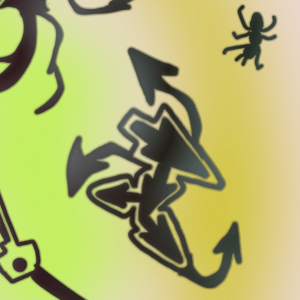Shoulder surfing communal devices as sites of (un)learning?
| Shoulder surfing communal devices as sites of (un)learning? | |
|---|---|
| Name | Shoulder surfing communal devices as sites of (un)learning? |
| Location | Het Wilde Weg |
| Date | 2024/07/18 |
| Time | 10:00-13:00 |
| PeopleOrganisations | Kim Kleinert, Karen Czock |
| Type | HDSC2024 |
| Web | Yes |
| No | |
Since 2008, there are more electronic devices/computers than people on earth. This pinpoint in history is symbolic for how our relationship to devices gradually changed since private computers were introduced. Before, computers were rare and expensive goods and used to be shared by a group of people or a household. In this act of sharing, computers appeared as a common site for shoulder surfing, exploration and (dis-)agreement over who gets to hold the mouse.
We would like to invite to a collective experiment in which we challenge today's proprietary, territorialized relation to devices by speculating on collective computers. What would a utopian relationship between devices and users look like? If a mobile phone is an extension of the body, what happens when we share a device? Could revisiting histories of technology usage enable us to understand the present – and envision different futures?
The workshop starts with an analogue kick-off, after which we split up into groups. In a hands-on experiment, each group is equipped with a linux computer and creates a multi cursor setup (https://wiki.archlinux.org/title/Multi-pointer_X). This allows one computer to be controlled by multiple input devices and thus cursors at once. In this speculative, buggy space, we reclaim the device as shared site of (un)learning. Gathering in front of their computer, each group can roam around in the collective setup and explore different roles of commanding, scrolling, clicking based on small proposed and made-up tasks. Afterwards, we will come together and share experiences and thoughts.
- duration: ca. 4h (still open to discuss)
- number of participants: Our experiment requires at least 2 participants and works with approx. up to 20 participants.
- materials / tools: you are invited to bring and communalize your own (xorg) linux machine (we will also be able to provide some)
- what do participants need to prepare: /
Kim Kleinert is a designer/developer currently thinking about web materiality and communality.
Karen Czock, developer/designer interested in infrastructures in the context of digital publishing.











